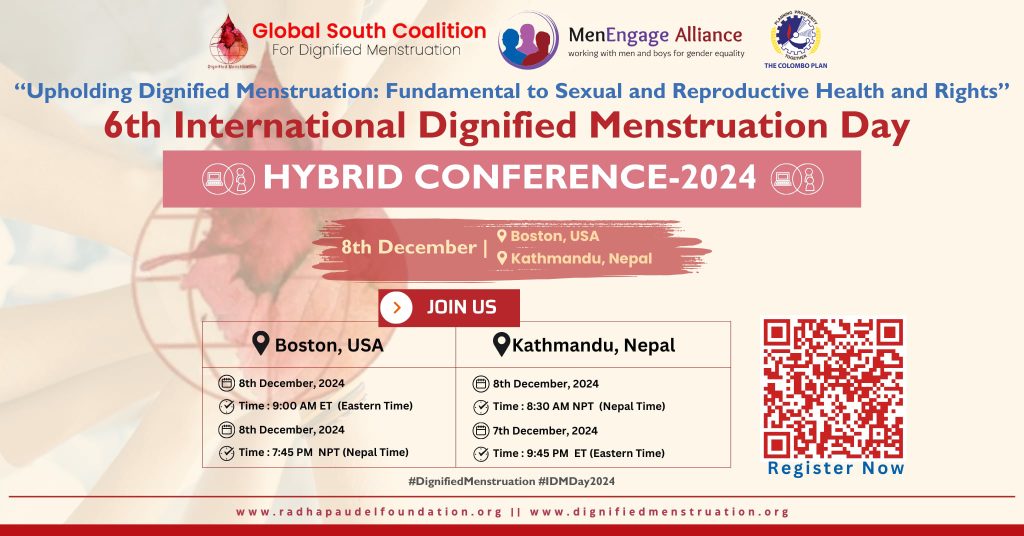The Colombo Plan Gender Affairs Programme (CPGAP) facilitates protection and development of marginalised populations including men, women and children to promote a just and equitable society in member countries such as, Afghanistan, Vietnam and Indonesia. CPGAP works in collaboration with governments and stakeholders to provide training programmes, workshops and technical assistance in developing gender policies, supporting gender-related capacity building and direct empowerment programmes.


In collaboration with the Global Coalition for Dignified Menstruation, the Colombo Plan supports the advocacy to dismantle the complex, often cultural or traditional, to menstrual equality.
In certain cultural and rural settings, women continue to face challenges accessing essential hygiene products during their menstrual cycle, often experiencing mistreatment from family members due to societal stigmas.
The advocacy seeks to reduce this stigma and provide evidence-based education to empower individuals facing similar challenges. This initiative is scheduled to launch on the 73rd Colombo Plan anniversary.
Established in May 2014, funds were provided to establish and capacitate:
• personnel of ten Women Protection Centres in ten provinces,
• 13 Family Guidance Centres in 13 provinces and
• one Halfway House Legal Advisory Centre.
Due to shifts in the political and administrative landscape, the majority of AWSF facilities were rendered inoperable after the change in government. However, while operational, the AWSF facilities no doubt left a lasting impact, reaching:
• 8,904 clients
• 13 provinces
• 1,208 female survivors seeking shelter at Women’s Protection Centres
• 6,061 seeking assistance from the Family Guidance Centres
• over 1,400 individuals receiving assistance at the two legal aid units, and
• 165 underage male survivors or those at risk of trafficking finding refuge in the boys’ shelters.
In 2023, a project funded by the US government was launched to award scholarships for Master’s courses being offered by the Asian Women University in Bangladesh. This initiative aimed to fully subsidise qualified Afghan women, enabling them to pursue higher education and enhance their career prospects. The selected candidates are scheduled to begin their academic year in July 2024.
Don’t miss our future updates! Get Subscribed Today!
© 2025. The Colombo Plan Secretariat. All Rights Reserved.